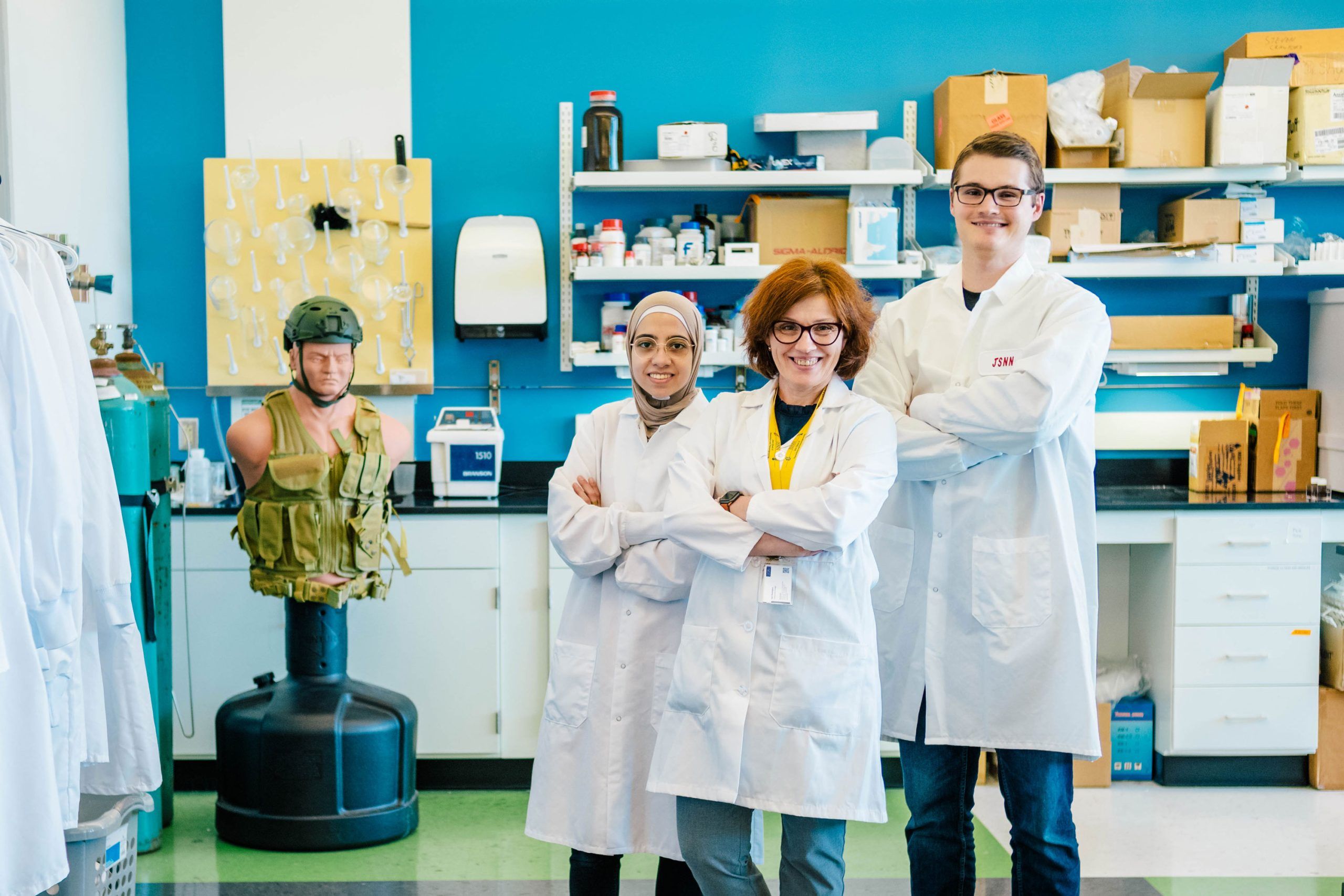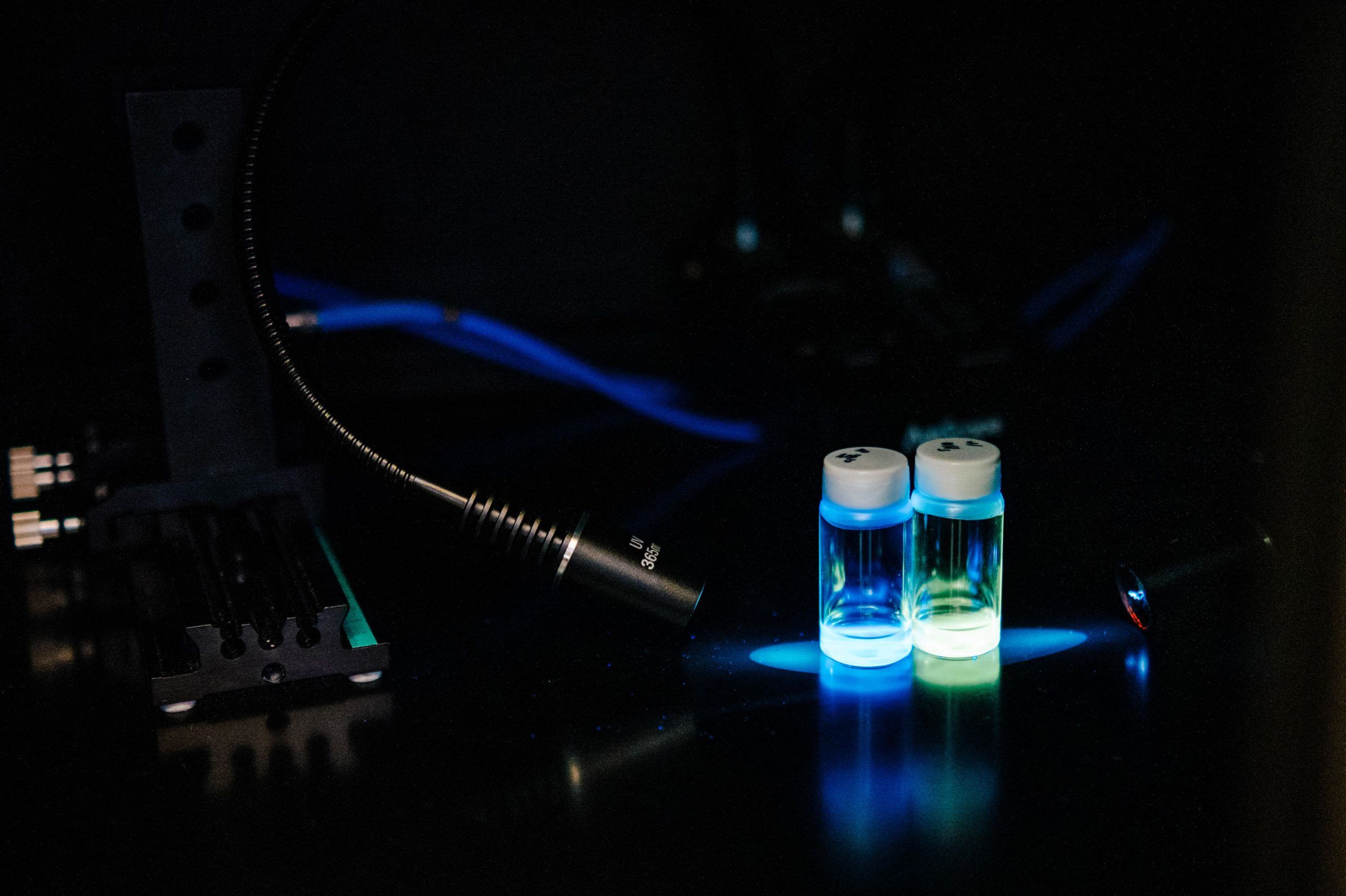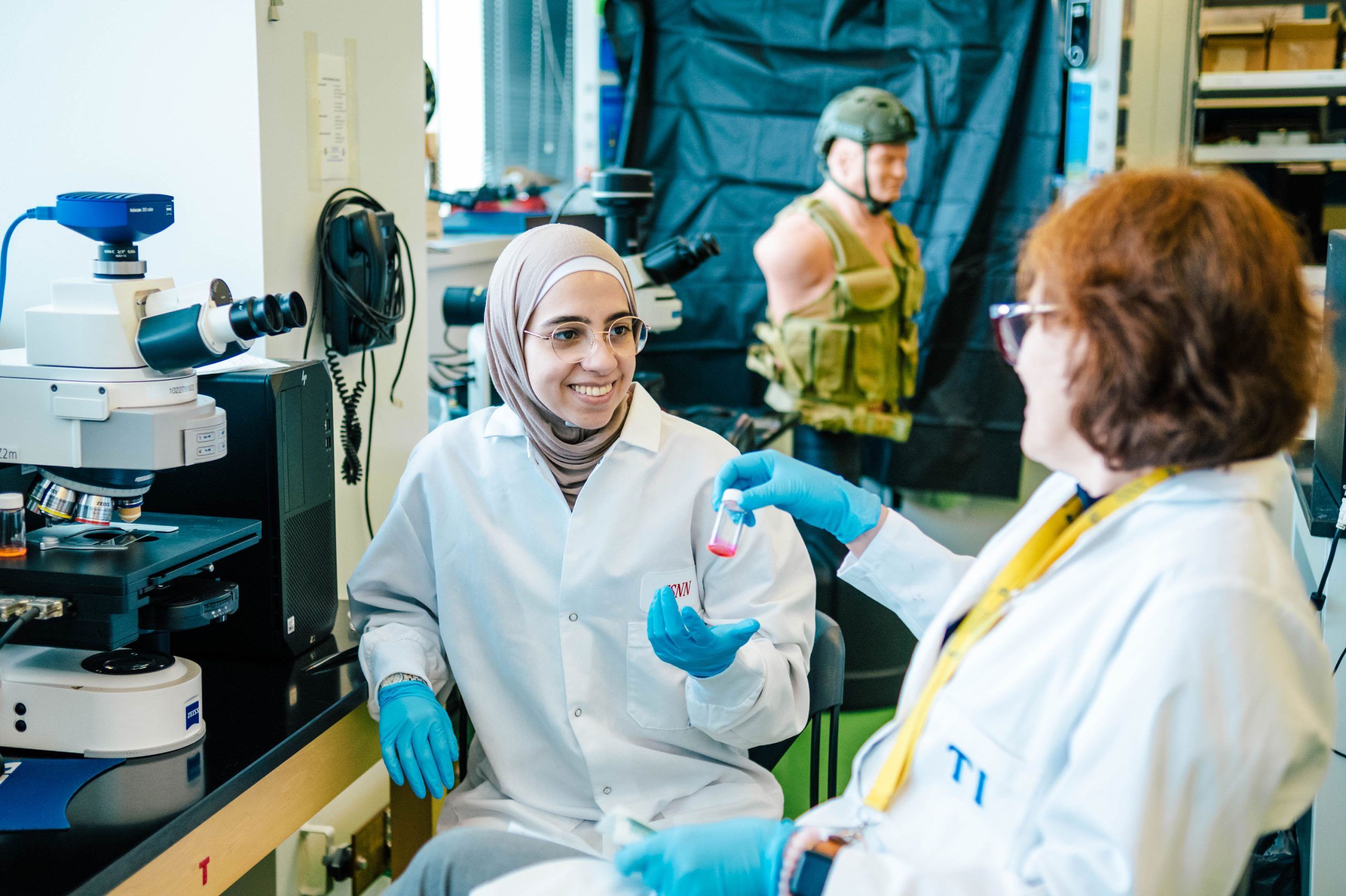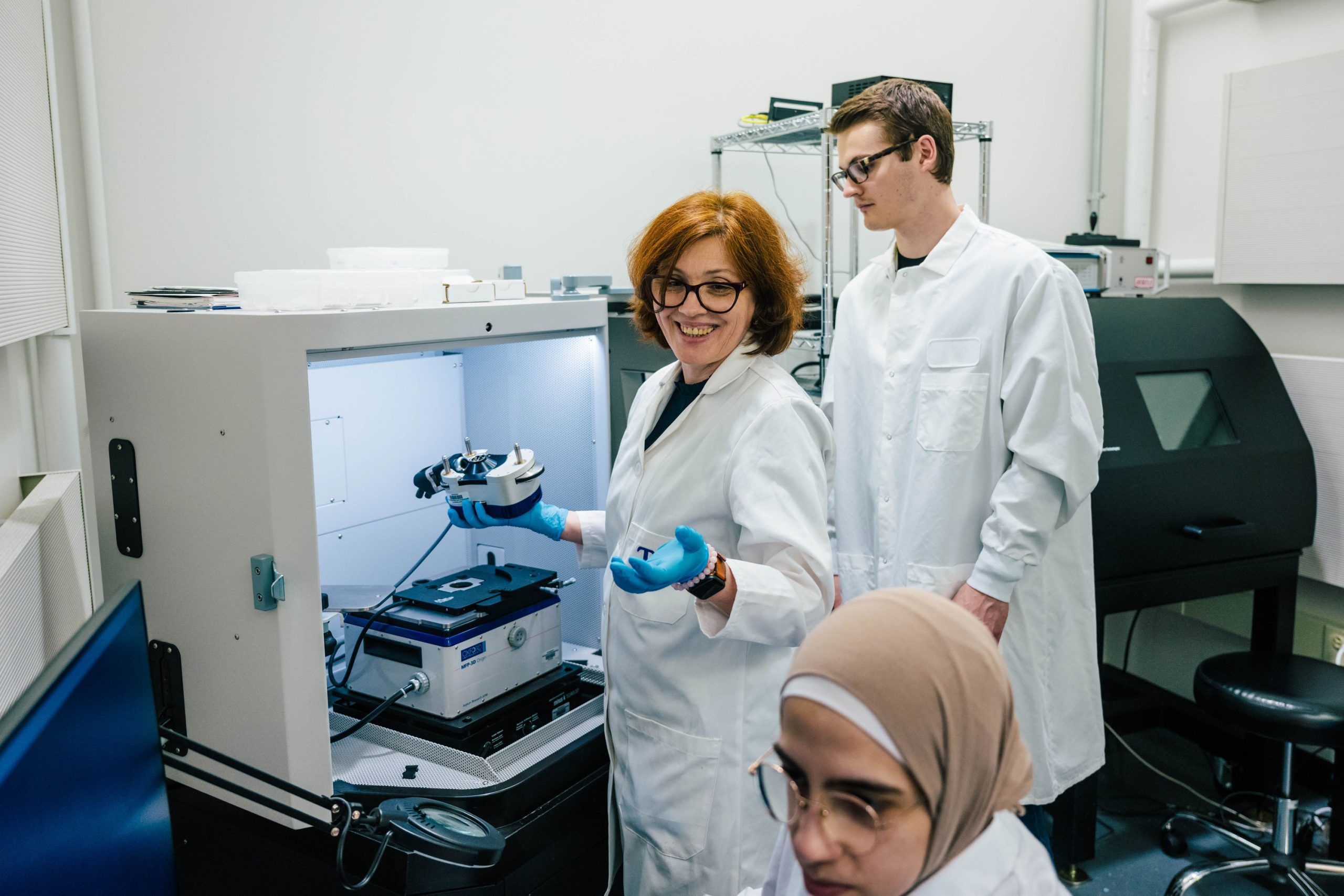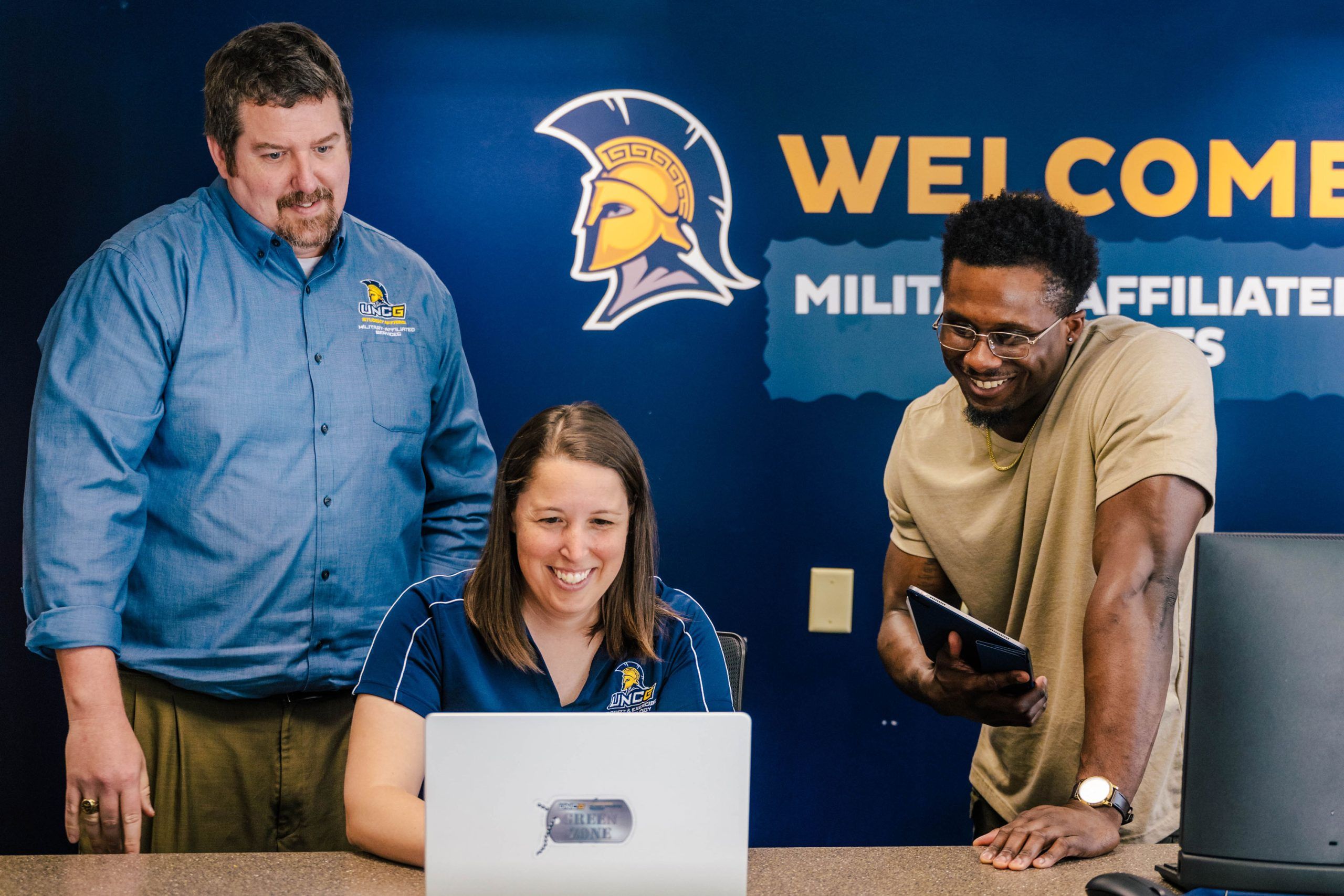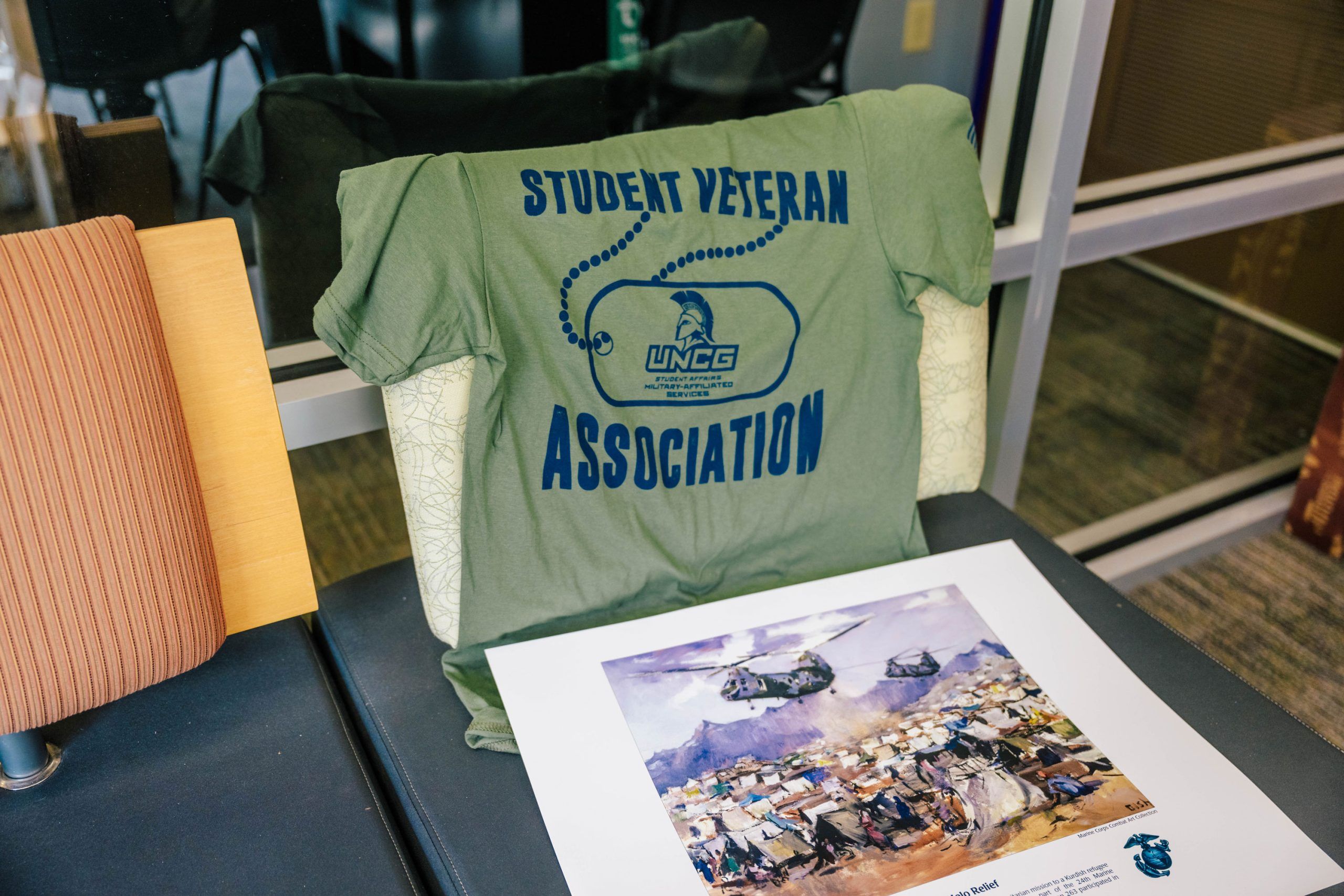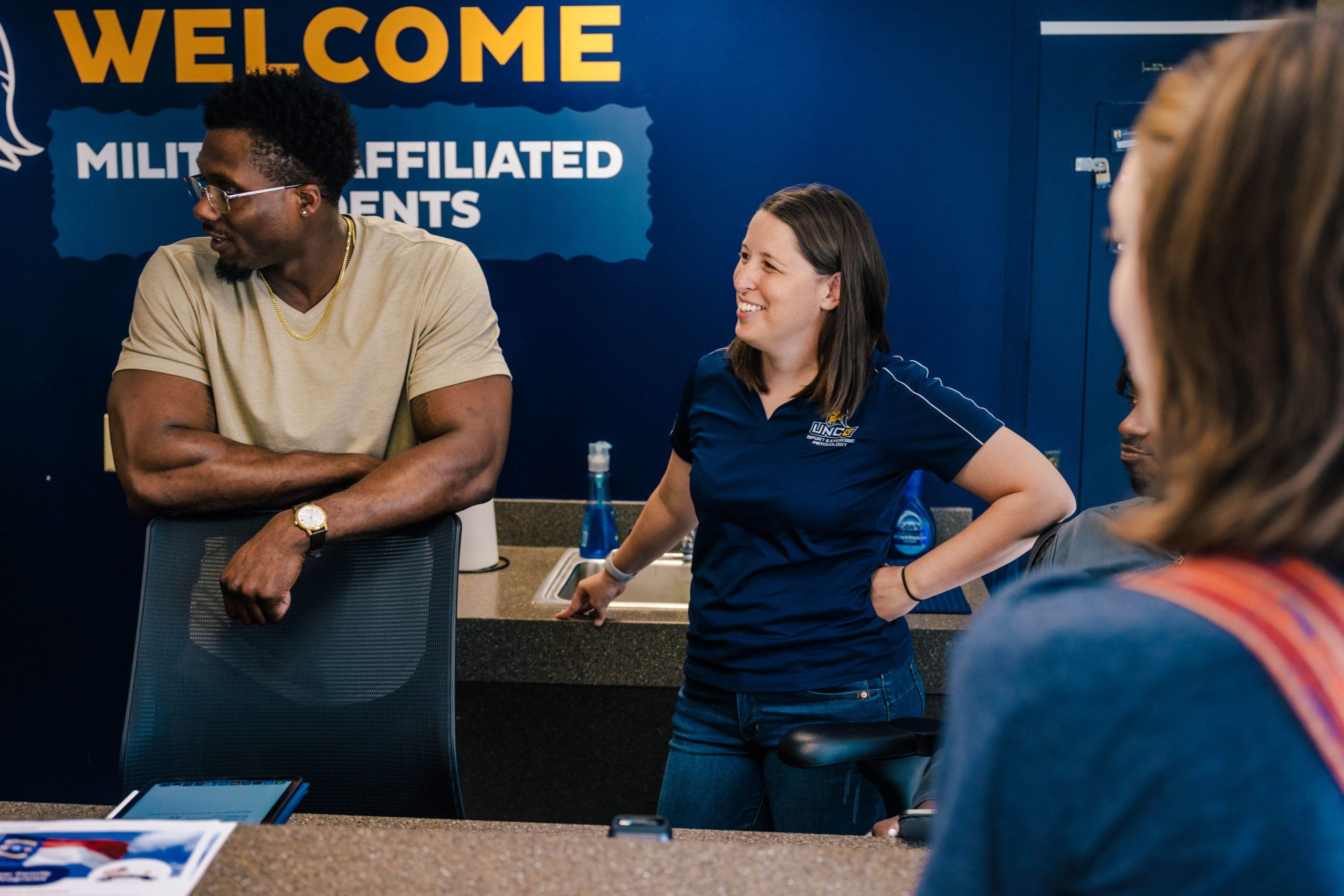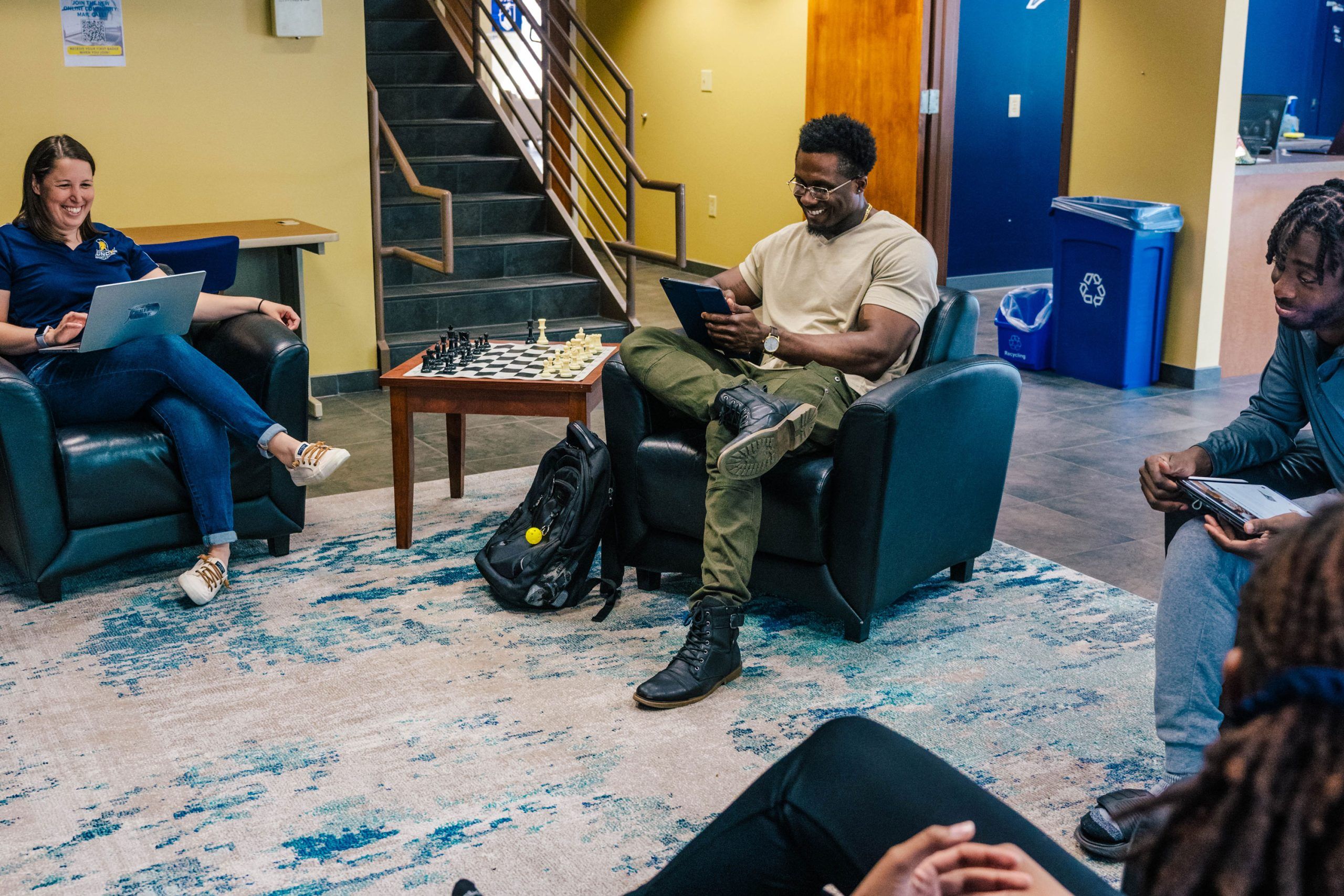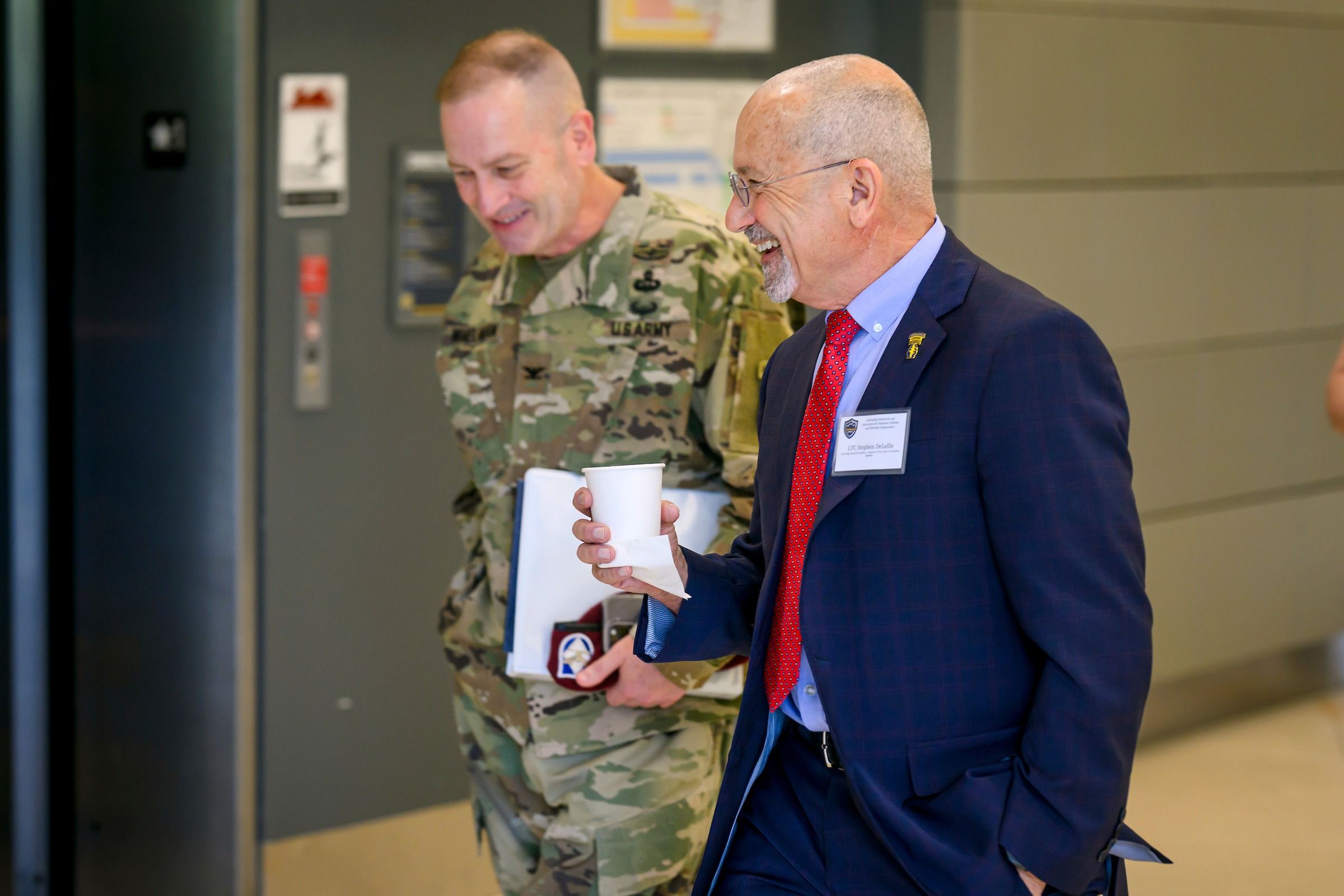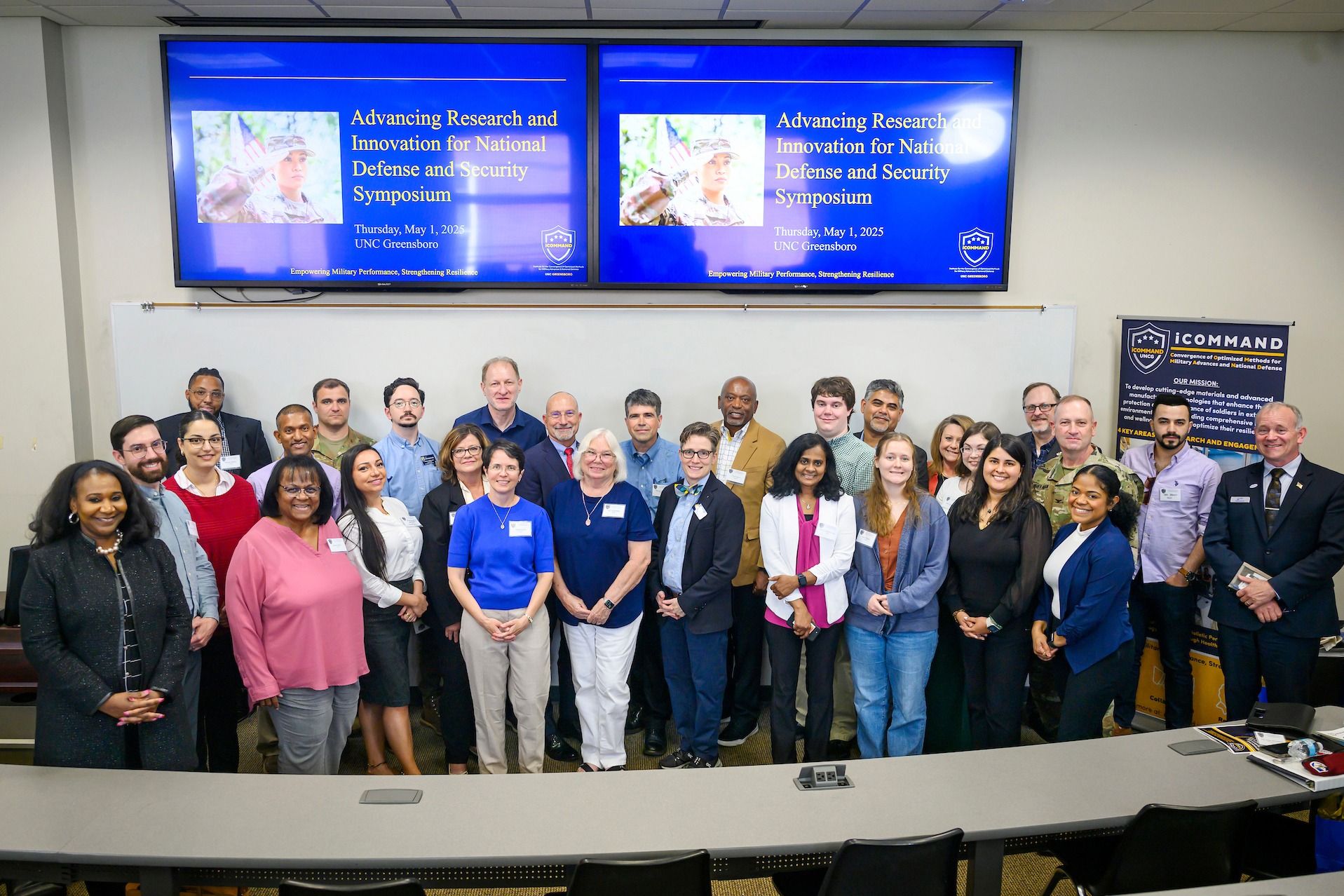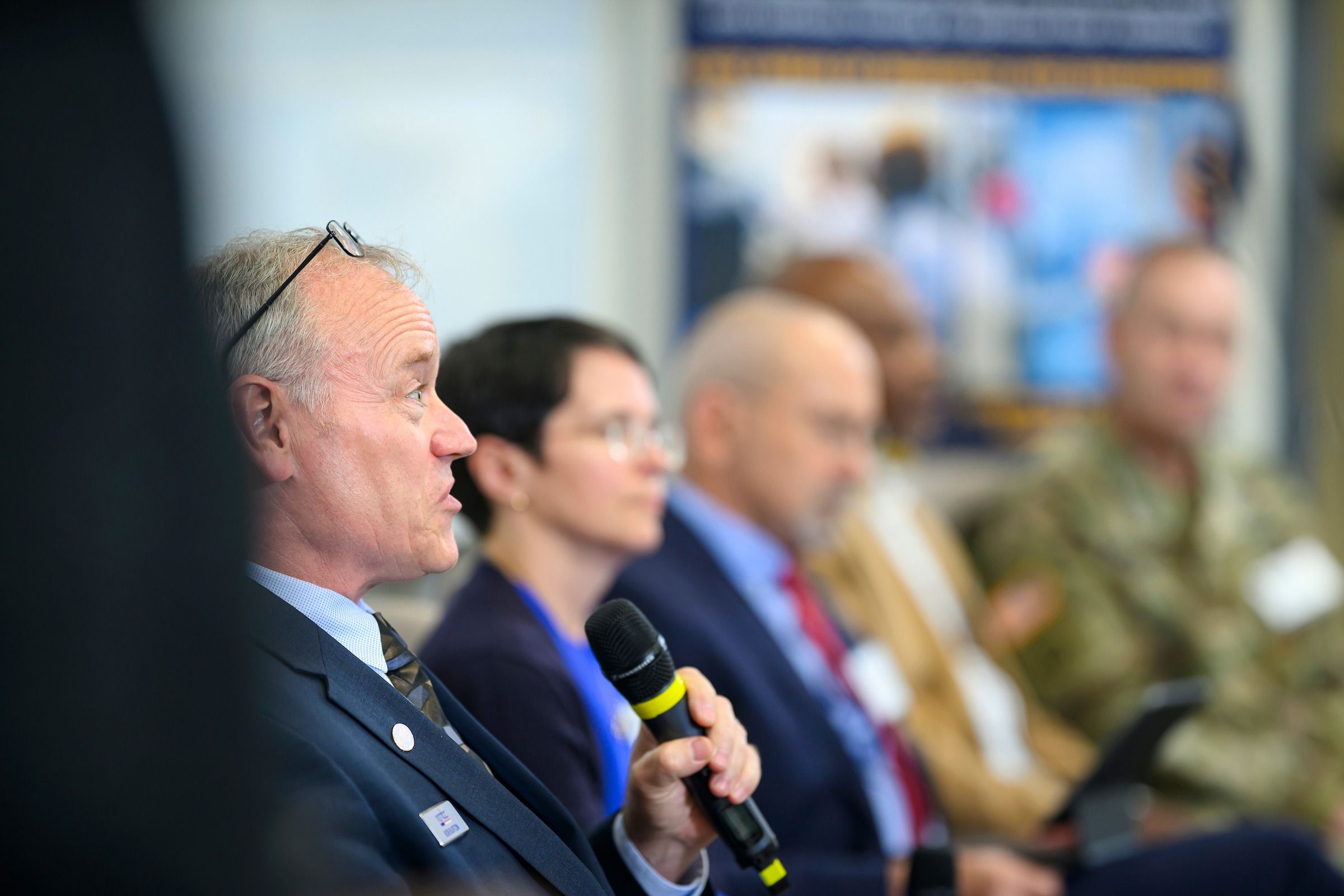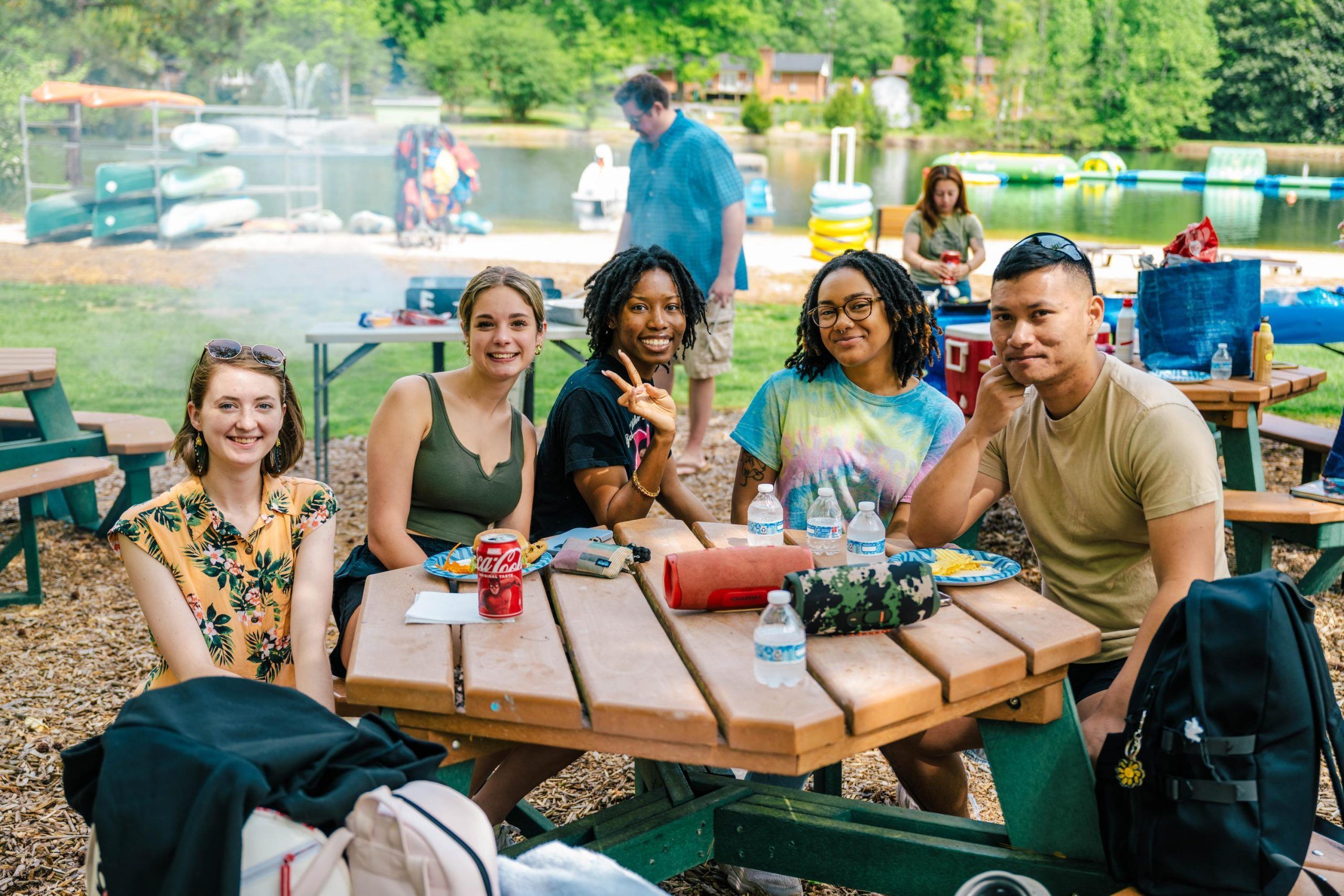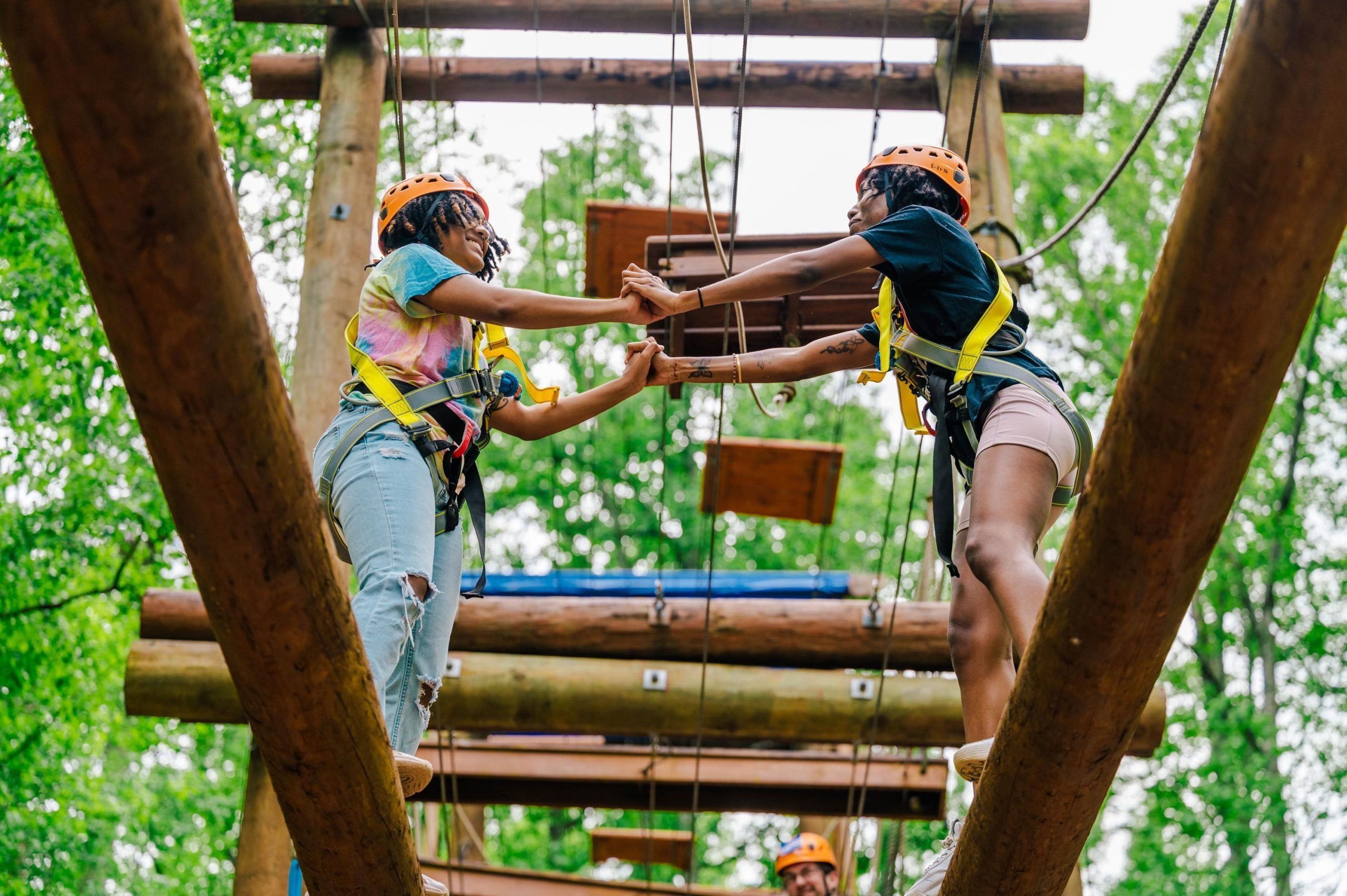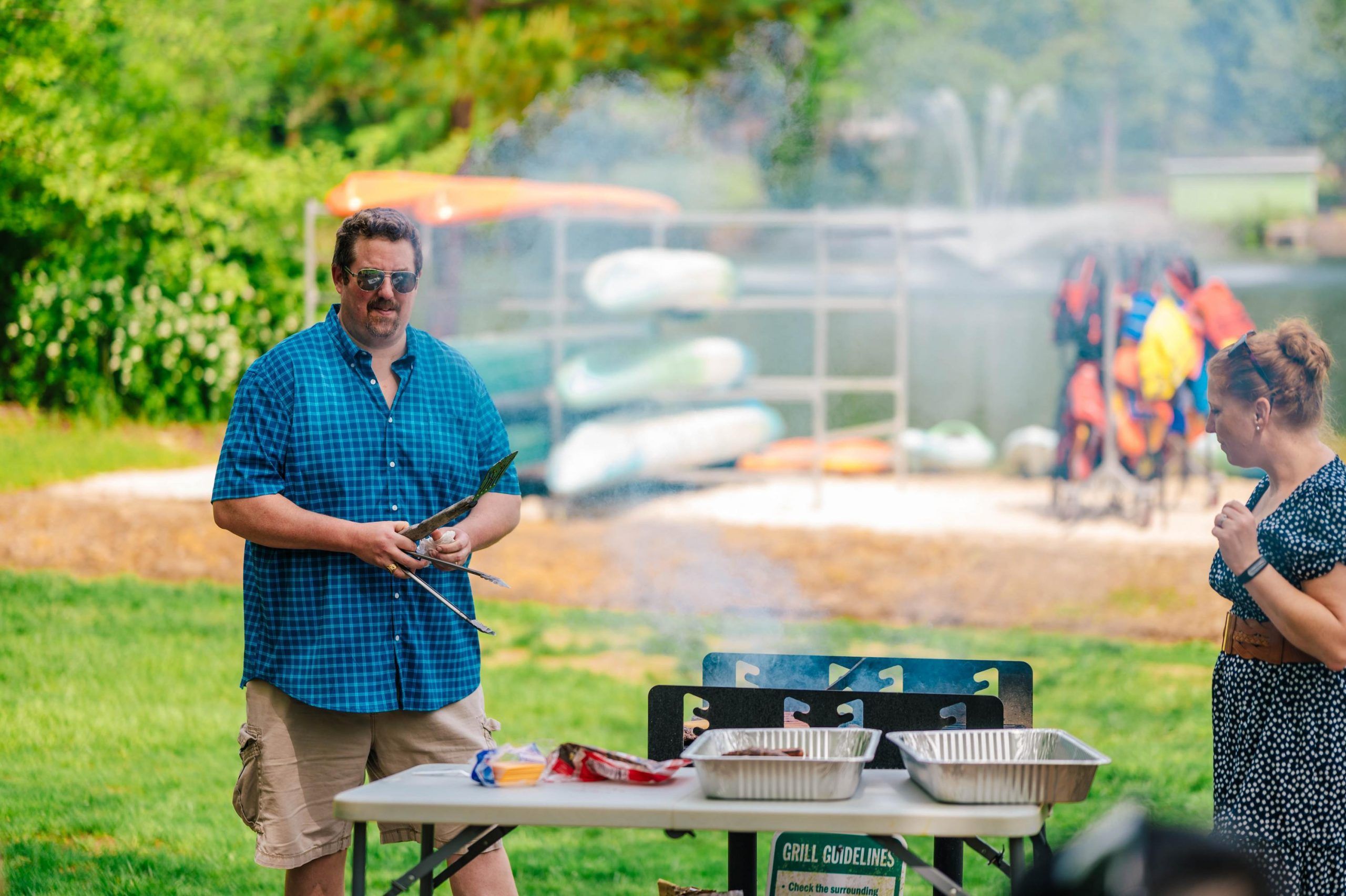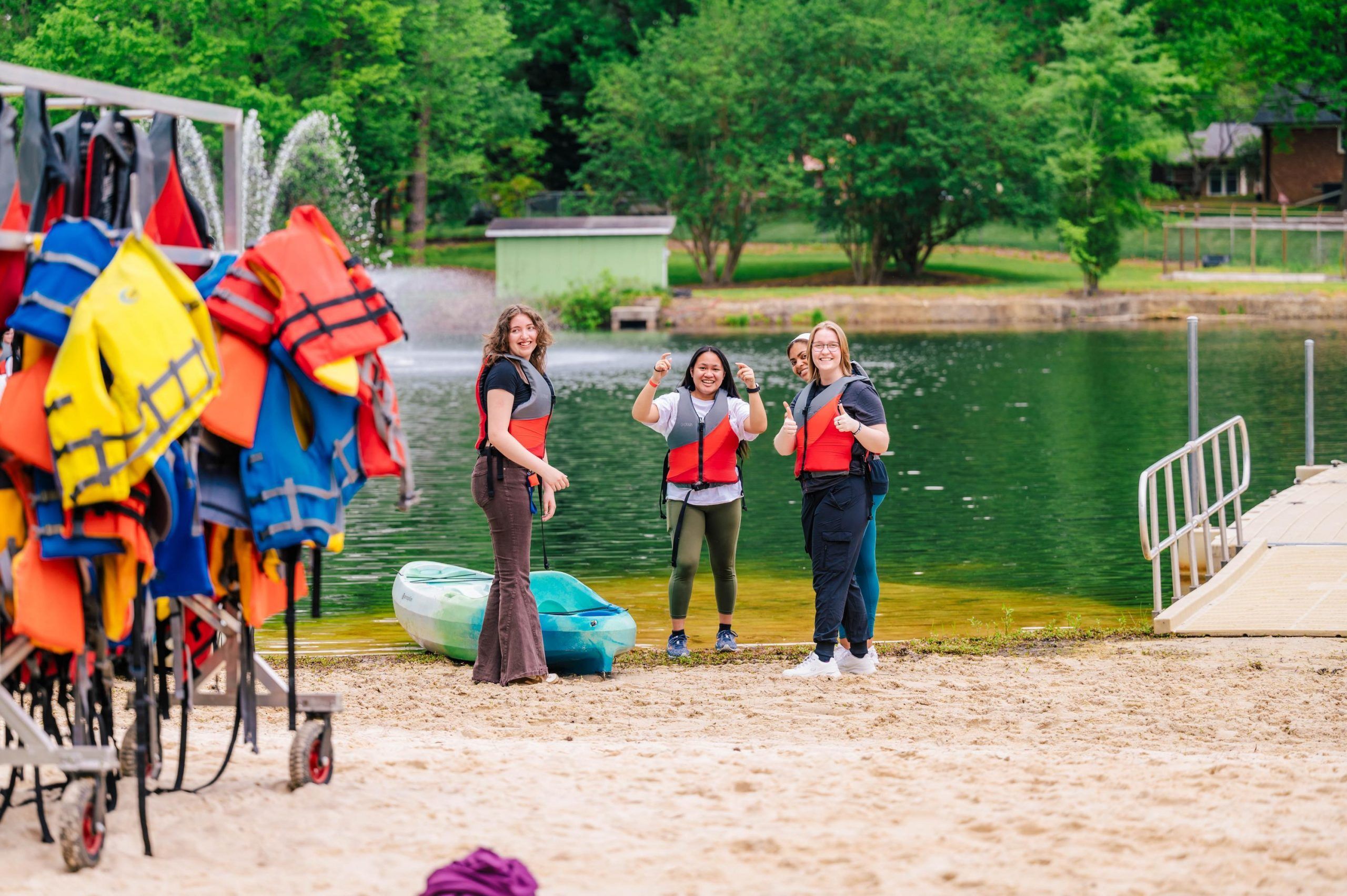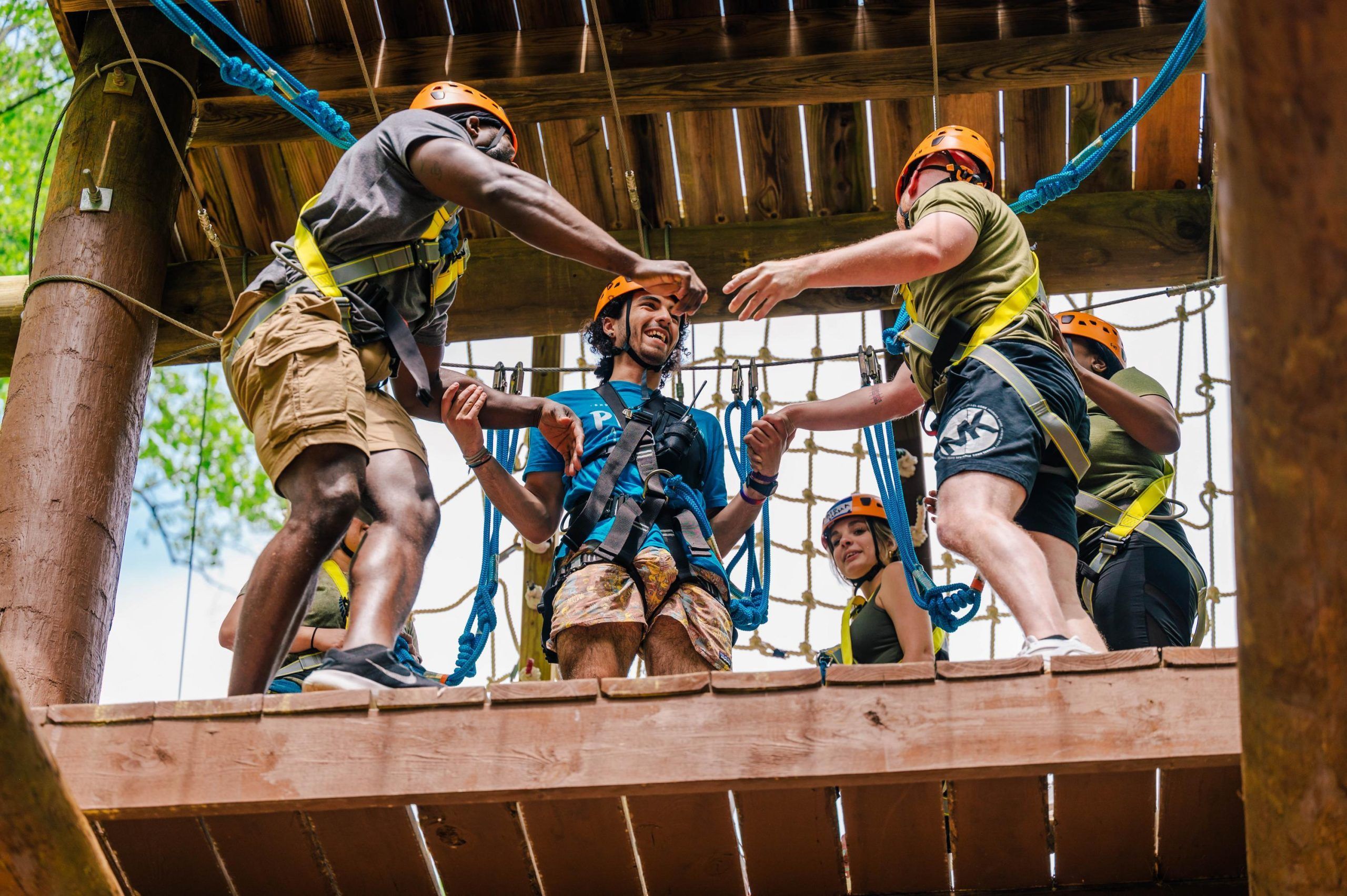Roll Call
Roll Call
UNC Greensboro is calling up its strengths in research and education to mobilize a new unit benefiting members of the military – from the battlefield to the classroom.
iCOMMAND, or the Institute for the Convergence of Optimized Methods for Military Advances and National Defense, focuses on four strategic areas: protection through innovative material and design, holistic performance through health and wellness, advancing biotechnology, education and workforce development.
Vice Chancellor for Research and Engagement Sherine Obare says the new UNCG institute will leverage existing research and relationships and forge new connections to ensure members of the military, and their families, thrive in any environment and in every phase of their lives.
“We want to enhance North Carolina’s position as a national leader in innovation in materials science and technology to support and protect service members,” says Dr. Obare.
“We also want to coordinate our efforts in education, training, and workforce development to support military-affiliated students.”
The university is already partnered with the U.S. Army Combat Capabilities Development Command Soldier Center – and with other universities in a system-wide effort – to develop innovative ways to protect soldiers from threats.
UNCG researchers are also connected with service members and veterans on base and on campus to develop and deliver health and wellness interventions that improve their well-being and resilience.
At the university, 8% of students are military-affiliated, and UNCG is a Top 10 Military Friendly School for both veterans and military spouses.
Interventions for these students flow through the UNCG Military-Affiliated Services office, known as MAS by staff and students. There, dedicated staff and faculty support past, current, and future service members, plus their dependents, in accessing educational benefits, getting academic support, and finding a community.
These UNCG offerings, which ease the military-to-college transition, leading to greater student success, are spreading across the system and, researchers hope, will set new standards for the nation.
iCOMMAND will help amplify these innovations at UNCG, says Obare. Through the new institute, the university formally sets its sights on equipping members of the military with advanced protective technologies, supporting them through science-backed training, and providing transition support for life after service.
Story Highlights
UNCG’s new institute for military advances and defense – iCOMMAND – will benefit service members from the battlefield to classroom.
STORY HIGHLIGHTS
UNCG’s new institute for military advances and defense – iCOMMAND – will benefit service members from the battlefield to classroom.
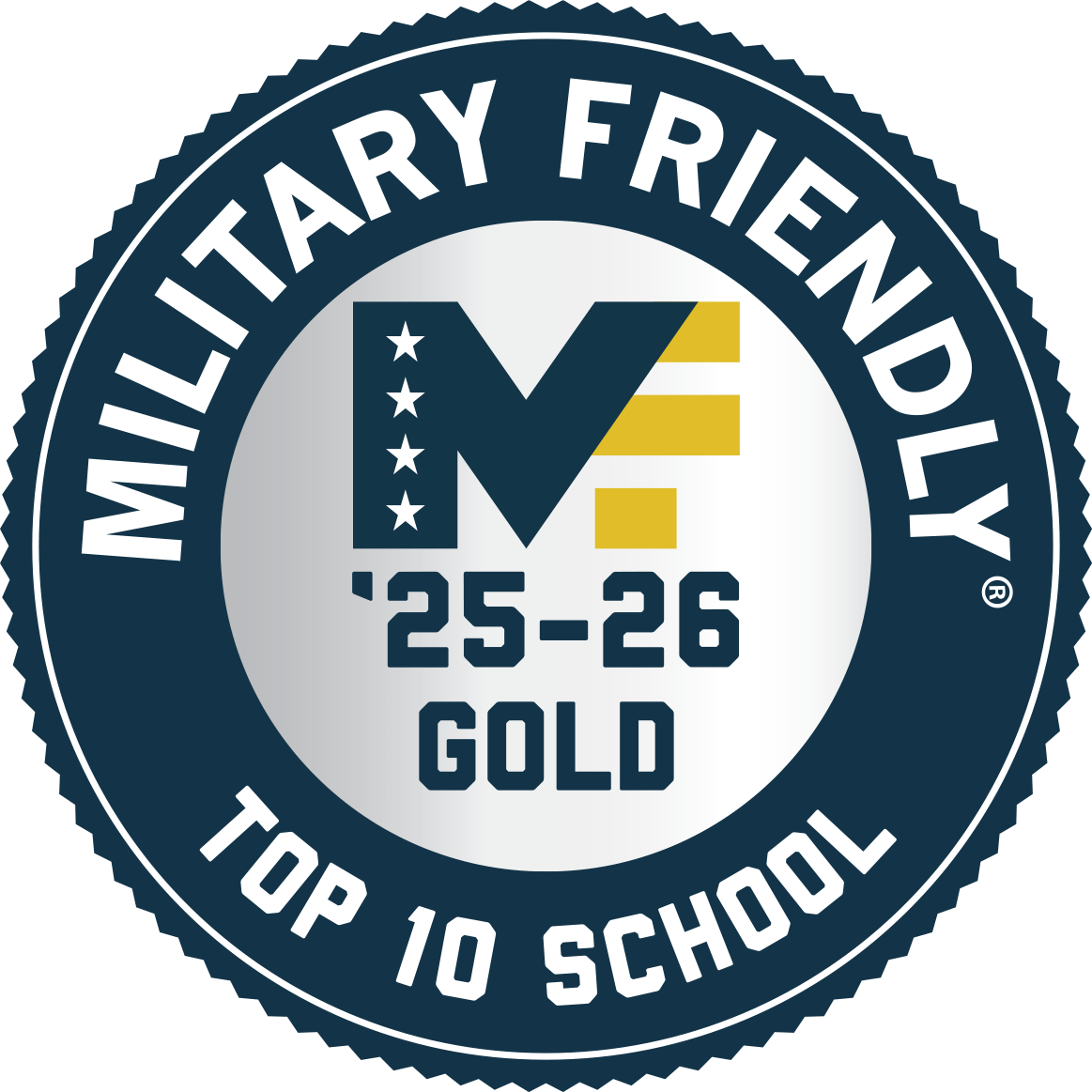
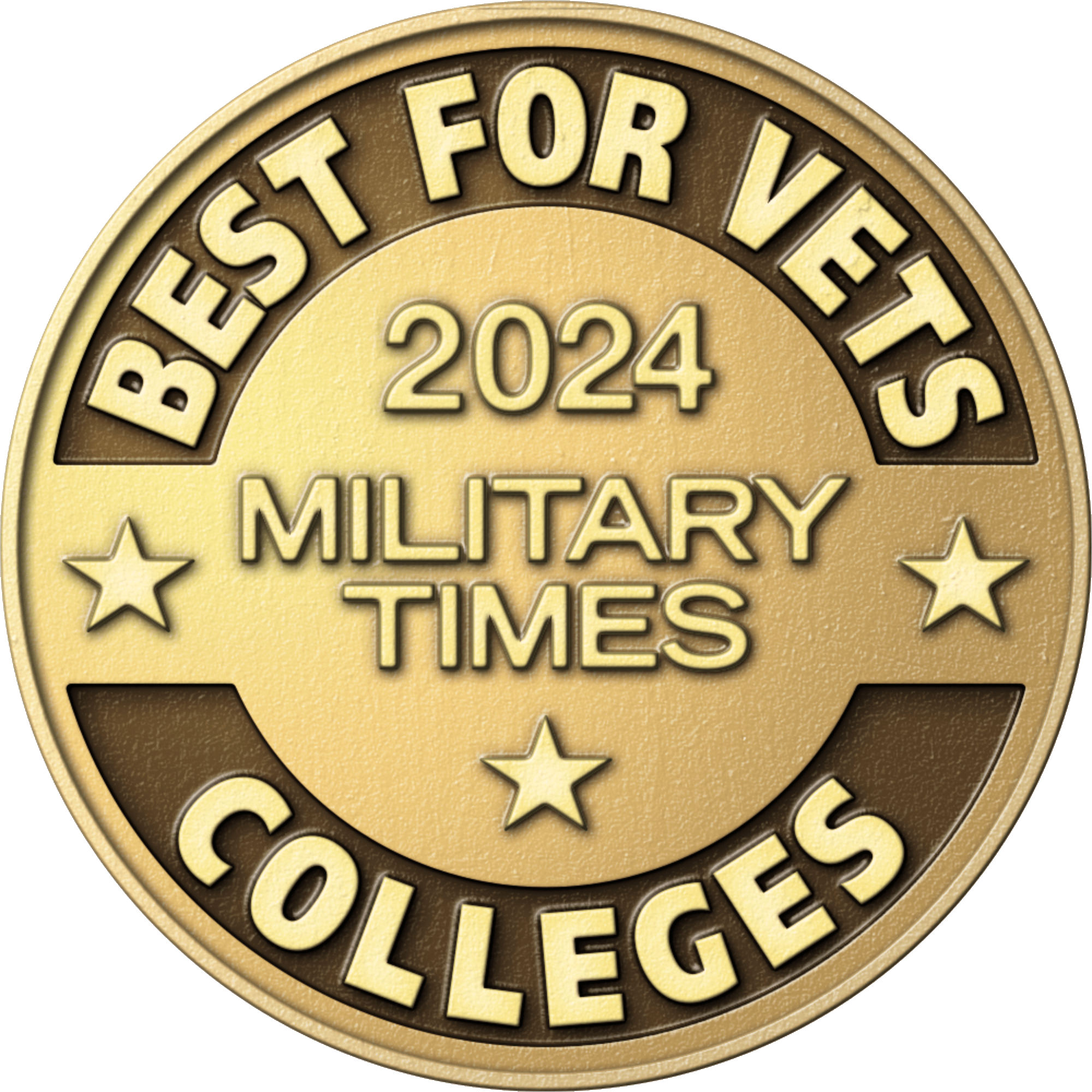
Tiny Particles with a Big Mission
In 2022, ICONS, the Innovative Collaborative Laboratory for Nanotechnologies to Empower the Future Soldier, launched as a collaboration between the UNCG and NC A&T Joint School of Nanoscience and Nanoengineering and the U.S. Army Combat Capabilities Development Command Soldier Center.
With over $1 million in funding, ICONS is developing specialized fabrics, material additives, sensors, and devices to protect soldiers and improve their performance in extreme environments.
Dr. Tetyana Ignatova and her graduate students at the Joint School of Nanoscience and Engineering are working on new nanomaterials for thermal protection devices, chemical and biological agent sensors, flexible electronics incorporated into fabrics, modified aquatic plants to clean up pollutants, and enhanced antimicrobial substances.
“We are manipulating materials atom by atom to enhance soldiers’ safety, agility, and endurance with stronger, more flexible, and comfortable textiles,” Obare says. “It’s about how we can improve their clothing, masks, backpacks, helmets, and more.”
Nanoscientist Dr. Tetyana Ignatova , co-leader of ICONS and a national leader in integrating artificial intelligence and nanoscience, conducts research focused on altering the properties of materials to help protect soldiers. Her team’s mission: to develop nanomaterials that are lighter, stronger, and safer.
They are working on new nanomaterials for thermal protection devices, chemical and biological agent sensors, flexible electronics incorporated into fabrics, modified aquatic plants to clean up pollutants, and enhanced antimicrobial substances.
“This project gives students a unique opportunity to work with the government on real-life problems –sometimes of national importance,” Ignatova says. “This partnership with DEVCOM Soldier Center helps bridge the gap between fundamental research in the lab and applied technology, ensuring our work supports U.S. defense needs.”
UNCG’s defense work has also attracted interest from the state.
In 2023, UNCG, with collaborators at NC A&T State University, Fayetteville State University, and Winston-Salem State University, won a UNC System Research Opportunities Initiative grant for the “Next Generation Protective Materials for Soldier Empowerment – NextGen PROMiSE” project, to expand North Carolina’s investment in this area.
Training Ground
Each of these research projects is also a training ground for the next generation of scientists. National Science Foundation Graduate Research Fellow and doctoral student Garett Barto is a scientist in training and a captain in the U.S. Army Reserves.
When he’s not in the lab researching Bacillus anthracis, the deadly bacteria that causes anthrax, Barto is responsible for 21 Army Reserve drill sergeants and trains cadets at military institutes, among other duties.
Barto works in Dr. Jason Reddick’s biochemistry lab. His bioinformatics project analyzes the genome of B. anthracis to discover new and unique enzymes that might be repurposed for industry or biodefense applications.
Barto’s dream is to conduct chemical and biological weapons defense research at the U.S. Army Medical Research Institute for Infectious Diseases.
“I believe defense against harmful chemicals and diseases is extremely important for our society,” Barto says. “I want to be the person to step up and learn how to contribute to that.”
UNCG’s MAS, he says, has helped unlock educational opportunities, helping him figure out the best way to use his GI bill benefits for doctoral credits.
“Being the only military doctoral student in my department can be lonely, as my life experiences are very different from most of my peers,” he says. MAS has also helped him find a sense of community.
Understanding Needs
A cornerstone of iCOMMAND, UNCG’s new defense institute, is health and wellness research to improve the readiness and resilience of active-duty military. This also means deploying support for UNCG’s 1,600-plus military-affiliated students. Dr. Erin Reifsteck and Dr. Michael Hemphill, associate professors of kinesiology, are leading the charge, in collaboration with MAS Director Chris Gregory.
Military-affiliated students have distinctive practical, physical, and psychological needs.
In 2021, Reifsteck and her research team implemented a survey, focus groups, and interviews at UNCG to better understand student veterans’ experiences and how UNCG could better support them. Then, in 2023, she and Hemphill partnered with the UNC System Office to build on that study and assess students across the system.
Across the UNC System, the researchers discovered that half of student veterans report struggling with the transition from military to college.
Gregory notes the military provides active-duty service members wrap-around support: housing, health care, convenient on-base grocery shopping, credit unions, and more. New veteran students need to know where to find those services in the civilian community while also transitioning to a collegiate lifestyle.
“We also learned that student veterans valued being a part of a community with others and were shaped by their shared experiences through military training,” Reifsteck says. “The strong peer network was lost when they left the military, and many of those we surveyed wanted to connect with other student veterans.”
At UNCG, MAS’s suite of offices and gathering rooms serve as military-affiliated students’ go-to source for information to help them meet their needs, whether they are academic or personal. Home to an active chapter of the Student Veterans of America, it’s a popular spot for veterans to relax between classes, study, and connect with peers.
“The students need to know they are not alone,” Gregory says. “There are people who can answer their questions and point them to resources.”
The team’s research is helping optimize the services MAS offers.
“Students wanted better options for connecting with other military students, more contact with faculty, and online options for resources,” Reifsteck says. An expert in sport and exercise psychology, she was recently named the first UNCG Faculty Fellow for Student Veteran Wellbeing.
With a team of student veterans assisting, Reifsteck and Gregory recently launched the “Mail Call!” online platform where UNCG military-affiliated students can connect, seek answers to practical questions, find exercise or study partners, learn about events, and access other resources.
“The student veterans picked that name and took the lead in building it. It’s similar to the concept when soldiers receive mail from loved ones, and it’s like a meeting place to get your news, and it’s a positive thing,” she says. “Centering student veteran voices through the process has been extremely important.”
Reifsteck and Gregory have also developed training for faculty and staff to learn more about the military-affiliated student experience. By understanding students’ issues and concerns, faculty members can better empathize and assist these students.
“Transitioning from military service to university life is a really important period,” Reifsteck says. “University faculty and staff can better support the student veteran population – not only their student success, but their overall well-being.”
Moving On
Physical fitness is basic to military success and vital to well-being. However, Reifsteck and Hemphill’s studies revealed that student veterans are less physically active post-service.
In the researchers’ system-wide survey, many student veterans also reported chronic pain, anxiety, depression, post-traumatic stress, migraine headaches, and insomnia. These are areas, the researchers say, where regular physical activity can help.
As a result, MAS has partnered with UNCG Recreation and Wellness to offer more fitness opportunities for its students.
MAS also offers community-building events featuring physical activities, such as Veteran and Family Day at the Lake each semester. And they’re collaborating with the School of Health and Human Sciences on activities designed for double duty – to build fitness and community.
On May 1, 2025, iCOMMAND launched with a symposium at UNCG to promote collaborative research between defense partners and academic institutions and included panelists from the XVIIII Airborne Corps, Fort Bragg Research Institute, NC Military Business Center, and DARPA.
In 2015, Reifsteck and her collaborators launched the Moving On! Program with the National Collegiate Athletics Association to prepare student-athletes to make healthy transitions to life after college sports. It’s now used at over a dozen NCAA-member institutions while an online module impacts thousands of additional student-athletes.
Similar to college athletes, she says, military veterans also leave a highly structured, fitness-oriented lifestyle and need support adjusting.
Now, with the assistance of UNCG graduate student and veteran Casey Harrell and others, Reifsteck is retooling Moving On! for student veterans. Through the program, veterans will set personal nutrition and fitness goals, learn strategies for healthy eating and physical fitness, and develop customized plans that support their well-being.
Reifsteck is also involved in a multi-institution collaboration to help active-duty service members at Fort Bragg maintain physical readiness. That team is testing a mobile app using place-based notifications to improve health behaviors.
Always on the lookout for new ways to collaborate, Reifsteck shares what she’s learned from her research with fitness employees at the base. Many of them, it turns out, are UNCG alumni.
